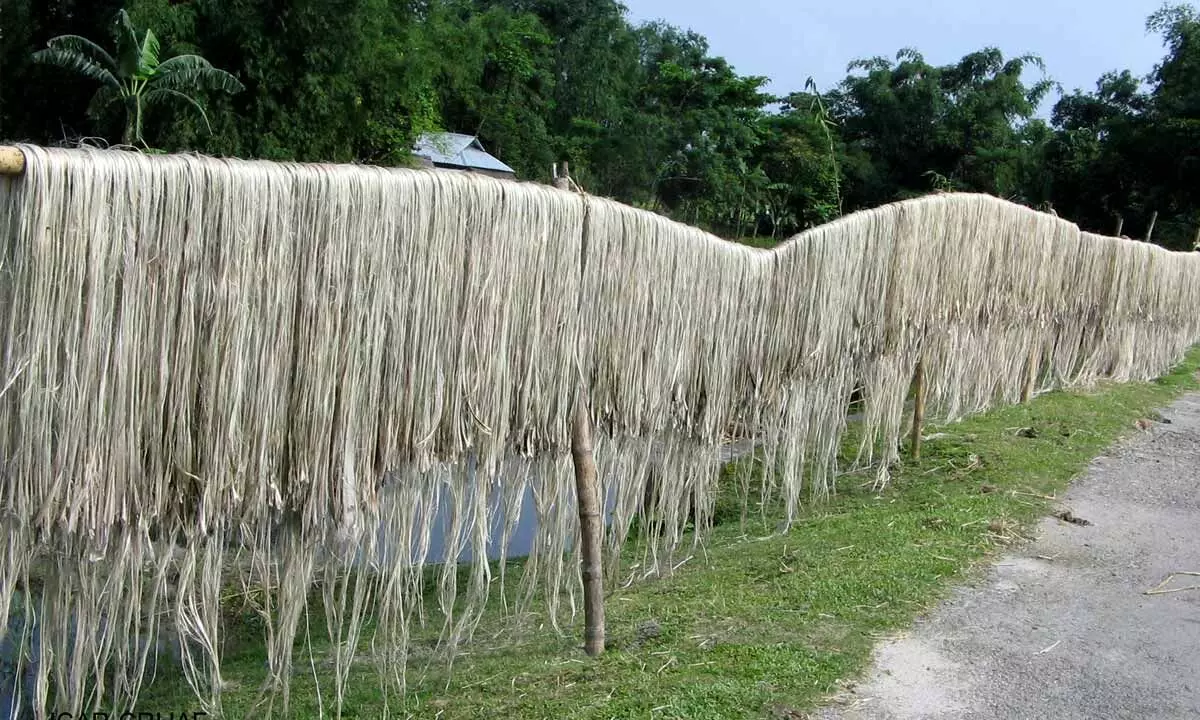Declaring jute as an agri-product is a masterstroke
Two recent developments that were almost back to back augur well for the Indian jute industry, often known as the golden fibre.
image for illustrative purpose

Two recent developments that were almost back to back augur well for the Indian jute industry, often known as the golden fibre. The Centre has approved reservation norms for mandatory use of jute in packaging of rice, wheat and sugar for the Jute Year 2022-23. The norms provide for full reservation for packaging of foodgrains and 20 per cent reservation for packaging of sugar in jute bags, which will be a big boost for West Bengal, in particular, where close to 75 jute mills operate and provide livelihood to lakhs of people. It will support 40 lakh farm families in the jute sector spread across Bihar, Odisha, Assam, Tripura, Meghalaya, Andhra Pradesh and Telangana.
In another significant development, albeit belated, the Centre has formally declared jute as an 'agricultural product'. A plant fibre, its industrial use and diversification of products should have been given this recognition, long back. Now, like other agricultural products, all kinds of incentives must be given to jute farmers. They and traders can now overcome the uncertainty of jute's future, and look to the future more confidently besides feeling financially secure. The latest development is also expected to streamline the jute sector from production to export.
Significantly, the jute industry occupies an important place in the national economy. Nearly 75 per cent of the total production of the jute industry is jute sacking bags of which 85 per cent is supplied to Food Corporation of India (FCI) and state procurement agencies (SPAs) and remaining is exported or sold directly. The government purchases jute sacking bags worth nearly Rs 9,000 crore every year for packaging of food grains. This ensures a guaranteed market for the produce. The average production of jute sacking bags is about 30 lakh bales (9 lakh MT) and the government is committed to ensure complete off-take of their production in order to protect the interests of jute farmers, workers and persons engaged in the industry. The reservation norms would further the interest of domestic production of raw jute and jute packaging material, thereby, making India self-reliant in consonance with Aatmanirbhar Bharat.
Talking about the other crucial decision, now that jute has been recognised as an 'agricultural product', the country's future strategy should be to exploit its competitive edge in terms of its environmental benefit. If properly planned for diversification of jute-based products, their demand will only increase in the international market. Mind you that in the context of climate change and a worldwide campaign against artificial fibres and polythene and plastic bags and other materials, the biodegradable environment-friendly fibre enjoys strong backing of the global environmental activists. Jute fulfils all sustainability parameters and that is great augury for Indian jute industry and all its stakeholders.

